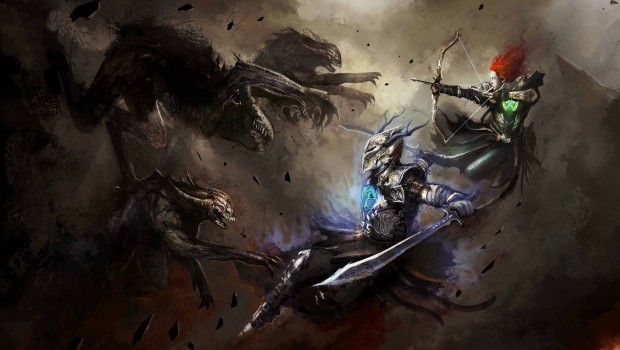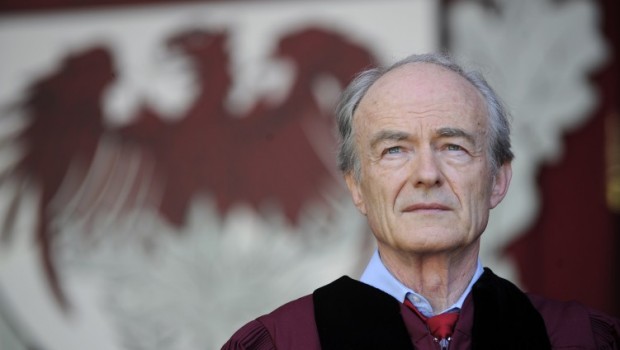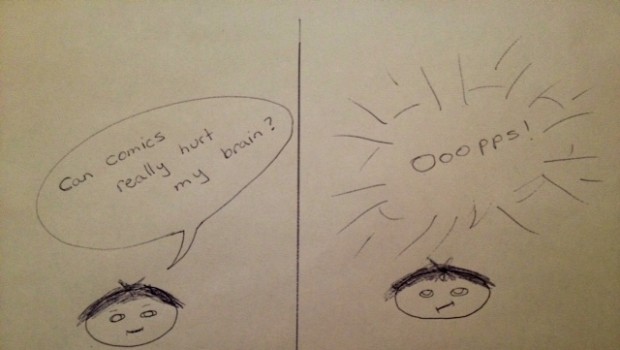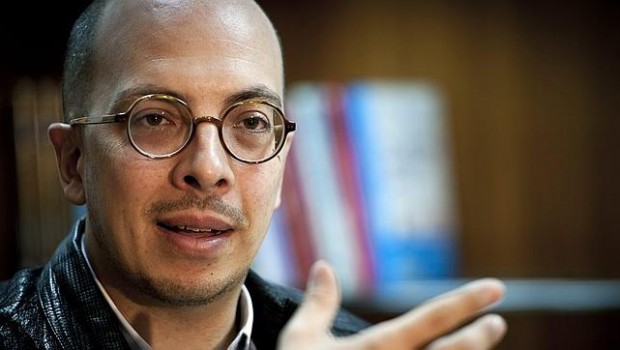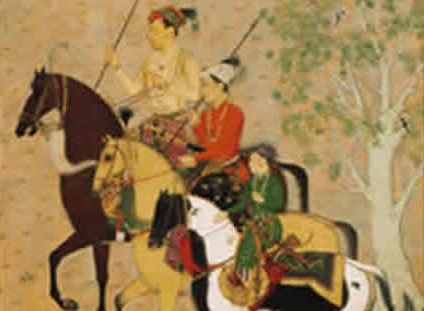Between the Radicality and Banality of Evil
Entre la radicalidad y la banalidad del mal
Jesús Silva-Herzog Márquez
It would seem that we have surpassed the idea of evil as a notion sustained by theologians and rationalists who failed to pinpoint the location of that particular impulse. But Hannah Arendt didn’t see it that way: she knew that the present would never stop refl ecting on evil. It was an expression one couldn’t do without in thinking about politics: if we abandon our ethical criteria in order to evaluate the actions of man, we will have lost, or abdicated, politics as a place of coexistence. She wanted to understand this, and in order to succeed she had to take on Auschwitz, just as Voltaire took on Lisbon.
The politics she embraced were not the politics of force, but the politics of words. Therefore, Arendt was rowing against Machiavelli and Hobbes, those two bastions of modern political conception. To her, politics didn’t reside in the prince who cleverly wields the instruments of repression blow by blow. Neither was it to be found in a monster of order hired out by fearful individuals. Politics inhabited the forum of conversation, the exchange of ideas, the search for a common ground. Whereas according to the heirs of Hobbes, that is to say, the moderns, power consists of the capacity to impose one’s will on others, to Arendt, “it corresponds to the human ability not just to act, but to act in concert.”
Going back to the wisdom of the ancients, the word that resides in the nucleus of political action is not simply a descriptive void, but rather an instrument of moral evaluation. It isn’t just “table” or “tree,” but also “kind” or “perverse.” This was the way totalitarianism knew how to inaugurate a more perverse tyranny than any of its forerunners, by perverting the rudiments of communication. With its newspeak, totalitarian power was no longer an external construction. It became, rather, a device of terror that operated on its subjects from within. Thus, all traditional categories fell apart under a regime that dismantled the common sense (the moral judgment) of its citizens.
It’s important to note that the theoretical construction of Arendt—when confronting the monstrous voracity of totalitarianism that engulfs all—doesn’t take refuge in that which is private or anti-political. On the contrary, hers is an unprecedented vindication of the value of politics. Far from distancing herself from the field, she was convinced of the necessity of recuperating it, reoccupying it. Because she didn’t see politics as a prolongation of war, or a nest of bureaucrats and representatives. To her, politics was a cultural treasure that allowed men to find themselves, to become fully human. A man isn’t to be found in the isolation of the private realm, in the routine echo of the mercantile. Only in the shared space of politics could man find his authentic existence. Citizenship, therefore, couldn’t be an occasional voting occurrence, but rather the daily experience of he who exercises his liberty together with others.
Her reporting of the Eichmann trial caused quite a scandal. The philosopher-cum-reporter for The New Yorker was accused of being an anti-Semite, a traitor who found victims guilty of their own ruin. But really what she was doing was to elude the tale of victims who implore commiseration. Thus, the idea of radical evil she had explored in The Origins of Totalitarianism was transformed into banality. Many were infuriated by the adjective. A banal genocide? A trivial extermination? Let there be no confusion: Arendt was not minimizing a crime of historic magnitude. Nor was she contradicting her previous work as I understand it. In The Origins of Totalitarianism, she sustains that one of the most striking elements of totalitarianism is the manner in which it turns people into the cogs of an administrative machine. Man is no longer a moral agent, becoming instead a screw. Thus, any moral responsibility vanishes. The most monstrous thing about the Holocaust is that those who were in charge of the extermination were ordinary types. Eichmann was no devil. He’d simply stopped thinking for himself. He followed orders without stopping to think about the moral implications. That is what triggers totalitarianism: when men stop thinking for themselves, no longer evaluating the ethical meaning of their actions on their own account.
Somewhere in The Origins of Totalitarianism Arendt talks about the depravation of Pavlov’s dog: a degenerate animal because he has been trained not to feel hunger when he’s hungry, but rather when his master rings a small bell. Here is where, it seems to me, the Arendtian opus comes full circle: in her work on the human condition, she invites us to “think about what we’re doing.” When we stop reflecting on our conduct, whether through the mechanics of totalitarianism or the routine of contemporary conformism, we stop acting as moral agents. We become, in this manner, the disciples of Eichmann.
La idea del mal parece una idea superada. Noción de teólogos y de racionalistas que no logran ubicar el sitio de ese impulso. Hannah Arendt no lo vio así: sabía que el presente no podía dejar de reflexionar sobre el mal. Pensar la política no podría prescindir de ese califi cativo: si abandonamos el criterio ético para evaluar las acciones del hombre, habremos abdicado de la política como sitio de convivencia. Quería comprender y para lograrlo había que hacerse cargo hoy de Auschwitz tal y como Voltaire se hizo cargo de Lisboa.
La política que abrazó no era la política de la fuerza sino la política de la palabra. Arendt remaba de este modo contra Maquiavelo y contra Hobbes, esos dos bastiones de la concepción moderna de la política. La política para ella no estaba en el príncipe que emplea, a golpes de astucia, los instrumentos de la represión. Tampoco se ubicaba en el monstruo del orden contratado por individuos temerosos. La política se encontraba en el foro de las conversaciones, en el intercambio de las ideas, en la búsqueda del camino común. Mientras el poder para los herederos de Hobbes, esto es, para los modernos, consiste en la capacidad de imponer una voluntad sobre otros; para Arendt “corresponde a la habilidad humana no solamente de actuar sino de actuar en concierto.”
Regresando a la sabiduría de los antiguos, la palabra que habita en el núcleo del actuar político no es simple moneda descriptiva sino instrumento de evaluación moral. No es sólo “mesa” o “árbol”, sino también “bondadoso” o “perverso.” Por eso supo que el totalitarismo, al pervertir los rudimentos de la comunicación inauguraba una tiranía más perversa que cualquiera de sus precedentes. Con su newspeak, el poder totalitario dejaba de ser una constricción externa para convertirse en un dispositivo de terror que opera desde dentro de sus súbditos. Todas las categorías tradicionales se desmoronaban así bajo un régimen que desmonta el sentido común (el juicio moral) de los ciudadanos.
Lo notable de la construcción teórica de Arendt es que, frente a la monstruosa voracidad del totalitarismo que todo lo absorbe, no se refugia en la defensa de lo privado o lo antipolítico. Por el contrario, reivindica como nadie lo ha hecho, el valor de la política. Lejos de distanciarse de ese ámbito, estaba convencida de que era necesario recuperarlo, reocuparlo. Es que no veía en la política una prolongación de la guerra, ni el nido de burócratas o apoderados. La política era para ella un tesoro de la cultura que permitía que los hombres se encontraran a sí mismos, que fueran plenamente humanos. Sólo en el espacio común de la política, el hombre podría encontrar su existencia auténtica. No se es hombre en el aislamiento de lo privado, en el eco rutinario de lo mercantil. La ciudadanía, por ello, no podría ser episodio ocasional del votante, sino experiencia cotidiana de quien ejerce la libertad con otros.
Su reportaje del juicio de Eichmann generó todo un escándalo. Se acusó a la filósofa convertida en reportera del New Yorker de ser antisemita, una traidora que convertía a la víctima en culpable de su propia desgracia. Lo que hacía en realidad era escapar del cuento de la víctima que implora conmiseración. Ahí, la idea del mal radical que había explorado en Los orígenes del totalitarismo se transforma en banalidad. Muchos se indignaron con el adjetivo. ¿Un genocida banal? ¿Un exterminio trivial? No nos confundamos: Arendt no minimiza el crimen histórico. Tampoco —hasta donde alcanzo a entender— contradice su obra previa. En Los orígenes del totalitarismo sostiene que uno de los elementos más sobresalientes del totalitarismo es que convierte a las personas en engranajes de una maquinaria administrativa. El hombre deja de ser un agente moral para convertirse en tuerca. De ahí que la responsabilidad moral desaparezca. Lo más monstruoso del holocausto es que quienes estuvieron encargados del exterminio eran tipos ordinarios. Eichmann no era un demonio. Simplemente había dejado de pensar por sí mismo. Cumplía órdenes sin detenerse a pensar sus implicaciones morales. Eso es lo que provoca el totalitarismo: que los hombres dejen de pensar por sí mismos, que dejen de evaluar por su propia cuenta el sentido ético de sus acciones.
En algún lugar de Los orígenes del totalitarismo Arendt habla de la depravación del perro de Pavlov: es un animal degenerado porque ha sido entrenado para no sentir hambre cuando tiene hambre sino cuando el amo suena la campanita. Aquí es donde, me parece, se cierra el círculo de la obra arendtiana: En su trabajo sobre la condición humana nos invitaba a “pensar lo que hacemos.” Cuando dejamos de reflexionar sobre nuestra conducta, sea por la mecánica del totalitarismo o sea también por las rutinas del conformismo contemporáneo, dejamos de actuar como agentes morales. Nos convertimos de este modo en discípulos de Eichmann.




